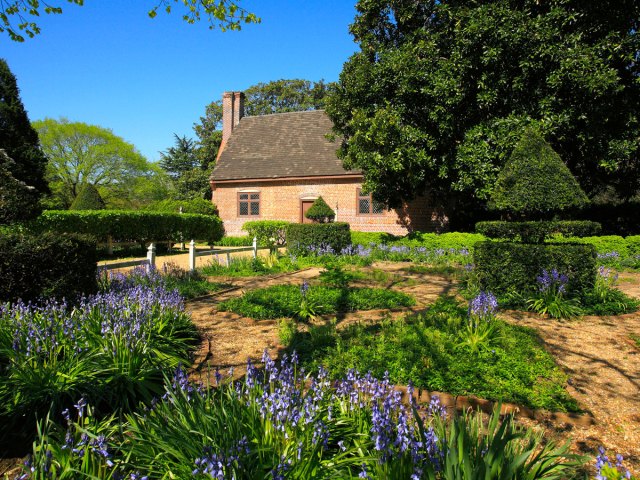I’ve lived in New York City for over 16 years, and in that time, I’ve stepped foot on Liberty Island, strolled through the halls of the Museum of Modern Art, and stood in the shadows of the Empire State Building. But for all these eminently recognizable landmarks, New York City contains many hidden treasures that are often overlooked by those who visit. Some of these off-the-beaten-path attractions are arguably even more enjoyable due to the lack of long lines and giant crowds. Here are five of my favorite underrated NYC attractions — one in each borough — and why you should visit them on your next Big Apple getaway.
The Met Cloisters – Manhattan
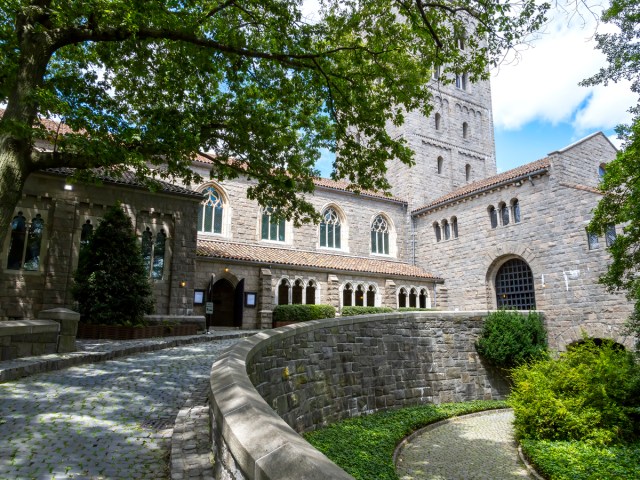
Tucked away in Fort Tryon Park at the upper end of the island of Manhattan, The Met Cloisters is a museum unlike any other in New York City. It’s operated by the Metropolitan Museum of Art, which is better known for its main museum on the east side of Central Park. But this off-the beaten-path alternative is a true hidden treasure you won’t find elsewhere, as it proudly claims to be the only museum in the country dedicated exclusively to art from the Middle Ages.
When I first visited this stunning site, I was dreading the idea of taking a 45-minute-long subway ride to some museum I’d never heard of. But soon after I arrived, those concerns were put to rest. The first thing that struck me was the beautiful nature of the surrounding park. In fact, it doesn’t even feel like you’re in a major city — the trees block out all of the surrounding tall buildings nearby, opening up toward the west for unobstructed views of the glistening Hudson River down below. You can spend hours staring out toward the water, but then you’d miss exploring the museum itself, which is just as fulfilling.
Architect Charles Collens designed the Cloisters, modeling his grand vision on medieval-era structures. The museum opened its doors in 1938, welcoming visitors to gaze upon a collection of art that’s since expanded to over 2,000 pieces. For me, the highlights were an array of stunning stained glass windows from the 13th century and the collection of ornately decorated religious artifacts that are gilded with gold and other embellishments. I also enjoyed the peace and serenity that comes from winding through the museum’s medieval-style gardens, which make the Cloisters feel like a little piece of classical Europe tucked away in Manhattan.
Van Cortlandt Park – The Bronx
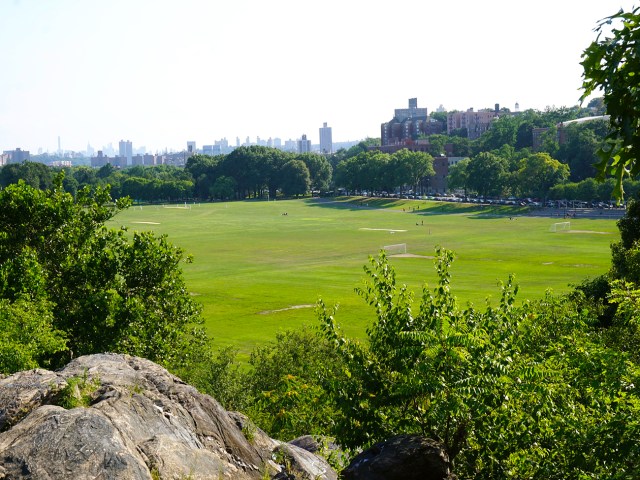
While Central Park is undoubtedly the most famous greenspace in New York City, it’s far from the only one worth visiting. In fact, the Bronx has the most greenery of any New York City borough. This includes the 1,146 acres that make up Van Cortlandt Park, which is one of my favorite natural preserves in the city. Van Cortlandt is the city’s third-largest park, with over 20 miles of hiking trails that take you through dense woodlands and over rocky crags. But it’s also renowned for its history, cultural significance, and entertainment options.
Most of my visits to Van Cortlandt Park have been spent at Van Cortlandt Golf Course, which opened in 1895 as the first public municipal golf course in the United States. Yes, I’m one of those delusional golfers who keeps trying to break 100 even though it’s seemingly impossible, and Van Cortlandt Golf Course is one of the best places in the city to attempt my lofty goals. It’s long been a popular spot among New York celebrities, too, including Yankees slugger Babe Ruth, groundbreaking athlete Jackie Robinson, and the Three Stooges.
Even if you’re not much of a golfer, there’s plenty more to love about the park. It’s packed with unique hiking experiences, with many of the trails combining untouched nature with urban development. And if you’re an American history buff like I am, I’d recommend popping into the Van Cortlandt House Museum, which is the oldest building in the Bronx. Dating back to 1748, it remains almost exactly as it was prior to the American Revolution.
There’s also Riverdale Equestrian Center for those who love horses, an Olympic-sized swimming pool to beat the heat during summer, and tons of biodiversity if you’re a nature lover. Best of all, the park is easy to get to from midtown Manhattan — it’s about a 40-minute ride along the 1 train from Times Square to 242nd Street.
Ganesha Temple – Queens
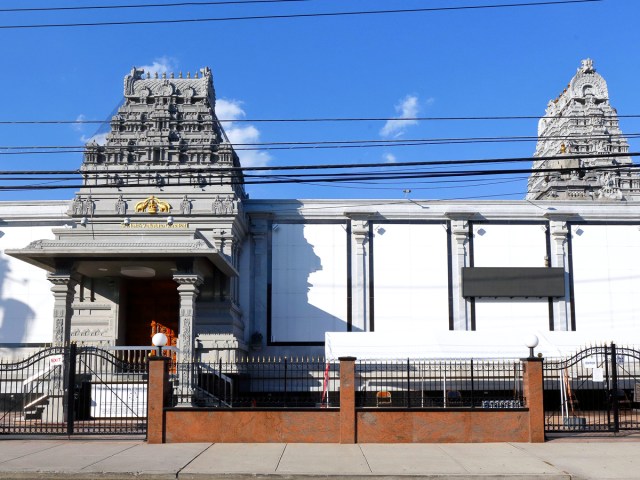
The Šri Mahã Vallabha Ganapati Devasthãnam — better known as the Ganesha Temple — is a Hindu temple in Flushing, Queens, that opened in 1977. Although I’m not of the Hindu faith, I still often think back to my first visit to the temple in early 2020 for a wedding.
Exhibiting spectacular architecture, the temple was built by Indian immigrants using granite stones imported from India, making it one of the most historically important and architecturally accurate Hindu temples in the West. The temple’s intricate exterior design is reminiscent of temples found in southern India, with significant religious iconography etched into the giant stone pillars that loom high above.
What makes this temple particularly memorable are the colors. Upon arrival, you’ll be welcomed by a vibrant golden arch. Then, as you wind through the halls, you’ll see vibrant artwork around every corner, depicting important figures from the Hindu religion. The temple is also known for offering exciting cultural activities like dance classes and vocal music classes taught by skilled experts to anyone who’s looking to broaden their cultural perspective.
After a long walk through the temple, you might build up an appetite. That’s when it’s time to head to the Temple Canteen, which has some of the most delicious vegetarian Indian food found anywhere in the city. The canteen catered the wedding I attended, and I fondly remember those plentiful portions as being some of the most delectable wedding food I’ve ever eaten. The Temple Canteen isn’t just for big events, though. The restaurant operates year-round — stop in for a bite, even if you’re not a vegetarian, and your stomach will thank you.
Staten Island Ferry – Staten Island
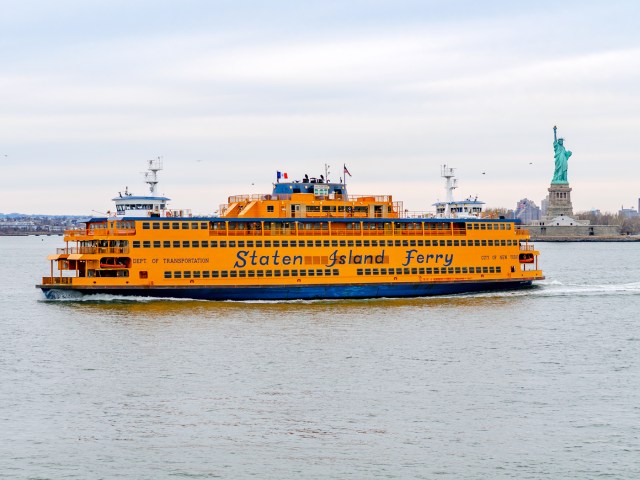
It may seem odd for me to suggest a commuter ferry as an attraction worth seeing. But the Staten Island Ferry is, by far, one of my favorite experiences in the city — and it’s also one of the few things you can do here that’s 100% free. The Staten Island Ferry operates 117 trips between lower Manhattan and Staten Island on an average day, and it has been in operation since 1905. For anyone looking to explore New York’s smallest borough, the ferry runs multiple times an hour from lower Manhattan.
I took the Staten Island Ferry for the first time in 2001, and the memories of that trip are still etched into my mind — it was the last time I ever saw the World Trade Center’s Twin Towers, where my father once worked. A couple of aspects of the ferry journey stood out to me. First, there were the views of New York Harbor, which can’t be beat. Whenever I ride the ferry now, I head down to the lower front portion of the boat, where I can look out on the water without any obstructions.
Second, the ferry provides great photo ops for the Statue of Liberty. While other ferries to Liberty Island cost upwards of $20 per person, the Staten Island Ferry takes you right by Lady Liberty, which is especially majestic when it’s lit up in the evening.
Once I disembark in Staten Island, my favorite thing to do — as a big baseball fan — is to attend a Staten Island FerryHawks baseball game. It’s just a five-minute walk from the ferry, but be sure to venture further into the borough for more culinary options. In particular, Staten Island is known for delicious Sri Lankan food, and many of the restaurants are only a 25-minute walk or so from the ferry terminal.
After returning to Manhattan, I like to grab a drink at the historic Fraunces Tavern, just a short walk from the terminal on the other side of New York Harbor. This bar and eatery was a favorite of George Washington back in the 18th century, and it continues to offer delicious libations to customers who flock there for the uniquely historic vibe and decor.
Green-Wood Cemetery – Brooklyn
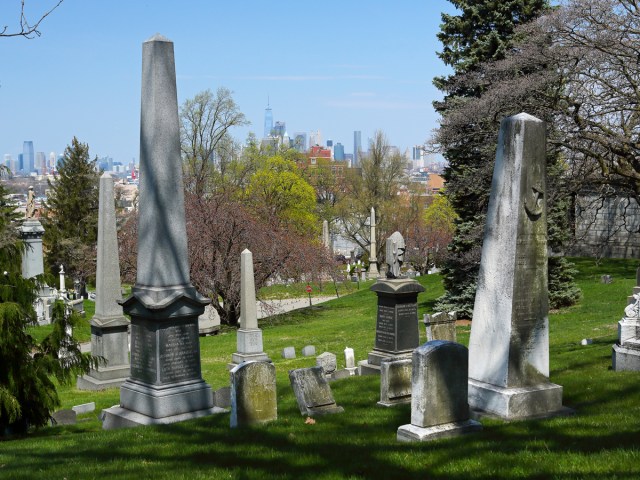
Green-Wood Cemetery isn’t as glamorous as Broadway or as exhilarating as a trip to the top of the Empire State Building. But it is one of the most fascinating, albeit macabre attractions in the city. The cemetery dates back to 1838, and it ushered in a new era of building public greenspaces around the city. In fact, the success of Green-Wood Cemetery, located near Park Slope and Prospect Park in Brooklyn, is what inspired the city to hold a contest to design Central Park, which opened two decades later.
The cemetery combines historic architecture, natural beauty, and cultural significance, and it all begins with the Green-Wood Cemetery Arch at the main entryway. This Civil War-era structure, made of gorgeous brownstone, is one of the most recognizable attractions in the borough. As you wind along the many cemetery paths, you’ll find countless buildings and monuments that are designed in the classical or Romanesque styles, as well as a Gothic-style church that dates to the early 20th century.
I also find it fascinating to think about the historic figures located on park grounds. With 570,000 or so permanent residents, Green-Wood is the final resting place of many New York City legends, including Jean-Michel Basquiat, whose work redefined the art scene and continues to inspire countless artists today.
You’ll also find the gravesites of composer Leonard Bernstein, notorious New York politician Boss Tweed, and Henry Chadwick, the latter of whom popularized baseball as the country’s national pastime. I’d suggest visiting all of the spots and reminiscing about the ways in which these people shaped both New York City and American history. I have yet to find another spot in the city that is so historically significant and serene.
More from our network
Daily Passport is part of Optimism, which publishes content that uplifts, informs, and inspires.













